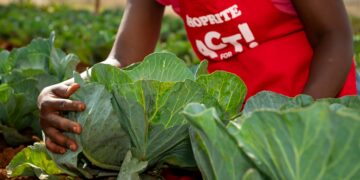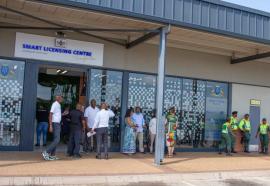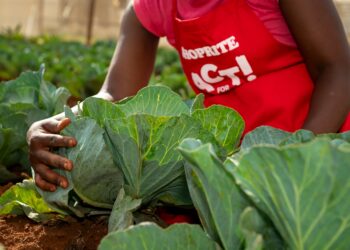South African interest rates have eased back to levels last seen in 2022, after the South African Reserve Bank (SARB) cut the repo rate by a small amount ‒ a quarter of a percent ‒ effective from 1 August this year.
The repo rate is the interest rate the SARB charges banks when they borrow money. When the repo rate goes down, loan interest rates usually follow, which makes paying back debt a little easier.
“The rate reduction is welcome news, but it does not mean the financial pressures facing many households have disappeared,” says Sarah Nicholson, customer experience and platform manager of JustMoney.co.za, a platform which helps South Africans make good money choices.
“Interest rates remain high for many. The prime lending rate for banks’ top-tier customers stands at 10.5%. Clients with lower credit scores or higher perceived risk are offered rates significantly above this.
“Everyday household expenses also continue to bite. If you feel your grocery bill is creeping up every month, you’re not imagining it.”
The Consumer Price Index (CPI) measures monthly price fluctuations for a range of goods and services, so it’s a handy cost-of-living index. It covers the cost of items such as housing, fuel, food, transport, healthcare, clothing, education, and leisure.
According to the latest CPI for all urban areas, released by Statistics South Africa (Stats SA), the cost of stewing beef, for example, was up by more than 20% in June, compared to a year ago.
Vegetables, fruit, and nuts were 13% more expensive. Electricity, gas, and other fuels increased by 11%.“Understanding what the CPI tells us about rising prices is helpful, but it’s even more important to know how to manage these costs in our daily lives,” says Nicholson. JustMoney offers the following budgeting tips.
- Food and groceries – eat well for lessSwitch protein sources. Rotate more expensive meats like lamb and beef with chicken, fish such as hake and pilchards, beans, and lentils.Go seasonal and local. Fresh, seasonal produce is often cheaper than out-of-season or imported items.Buy in bulk. Stock up on non-perishables when they’re on special, but avoid overbuying perishables that may spoil.Cook once, eat twice. Prepare double portions for dinner and use leftovers for lunch the next day.Check unit prices. Compare prices per kilogram or litre rather than per item.Reduce waste. Freeze bread and extra food portions before they spoil.
- 2. Transport ‒ keep it affordableFuel costs have eased from last year’s highs, so getting around costs a little less at present. However, it’s still important to watch your transport spending carefully.Optimise fuel usage. Drive smoothly, avoid harsh acceleration, and keep to moderate speeds to save fuel.Map efficient routes. Use navigation apps to combine errands into one trip.Maintain your vehicle. Regular servicing, wheel alignment, and tyre rotation can prevent costly repairs.Share resources. Consider ride-sharing with colleagues or friends for work or school runs.Use loyalty cards. Many fuel stations have loyalty programmes that convert points into fuel discounts or cashback.Review insurance. Adjust cover based on actual mileage, as low-mileage drivers often pay less.
- 3. Housing and utilities – control big billsBe more energy efficient. Install LED lighting, seal draughts, and insulate geysers and install timers to cut heating costs.Save water where possible. Fit tap aerators, fix leaks, and collect rainwater for gardening.Downsize or share space. Consider a smaller home or shared living arrangements to reduce monthly expenses.Keep an eye on prepaid utilities. Monitor usage closely if you’re on a prepaid meter. This helps you identify spikes early.Negotiate lower rent increases. Provide evidence of comparable rentals in your area to support your case.
4. Interest – reduce debt pressureEven though interest rates have dropped slightly, it’s crucial to keep a close eye on debt. Lower rates don’t erase existing financial obligations, and taking on new or extra debt can quickly become overwhelming.
Record numbers of South Africans use personal and one-month loans as a lifeline, according to DebtBusters’ Q1 2025 Debt Index. DebtBusters’ most vulnerable clients – those taking home R5,000 or less per month – use 76% of their income to repay debt. Those earning R35,000 or more spend 77% servicing debt. The ratios for these income groups are the highest since DebtBusters started analysing their client data in 2016.
JustMoney offers the following tips to help keep debt in check.Make snowball or avalanche repayments. Focus on paying off either the smallest debt first, for momentum, or the highest-interest debt, for maximum savings.Avoid new high-interest credit. Delay non-essential purchases instead of financing them.Automate payments. Set up debit orders for payday to avoid late fees.Build an emergency fund. Setting aside even a small amount each month, such as R200, can reduce your need to rely on credit when unexpected expenses arise.Seek advice. If you’re worried about debt, find a reputable debt counsellor who will guide you through your options. Reaching out early will relieve stress and put you on the path to financial stability.
Staying on top of your spending and avoiding unnecessary borrowing are key to keeping your finances healthy, concludes Nicholson.
Even with interest rates easing, South Africans cannot afford to let their guard down when it comes to managing money. Vigilance and smart financial choices remain essential if you are to weather financial challenges.”
JustMoney.co.za is a trusted voice within the personal finance sector, helping consumers make good money choices. The JustMoney platform offers personalised insights, numerous articles, and a range of financial solutions and tools, including a free credit score check.
- Meropa Communications
Soweto Sunrise News































